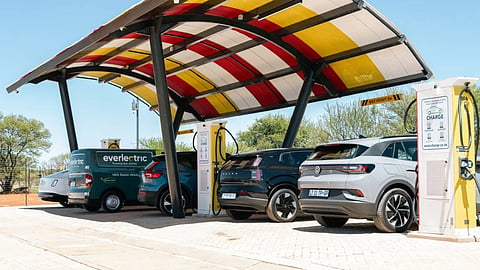Motoring
Off-grid and on track: R100m boost for SA’s first EV charging network
Zero Carbon Charge has explained how it plans to use a R100-million investment to expand its off-grid EV charging stations
Key topics:
Charge secures R100m from DBSA for EV station expansion
Five new solar-powered sites begin construction from July 2025
Revised goal: 60 EV stations nationwide by end of 2027
Sign up for your early morning brew of the BizNews Insider to keep you up to speed with the content that matters. The newsletter will land in your inbox at 5:30am weekdays. Register here.
Support South Africa’s bastion of independent journalism, offering balanced insights on investments, business, and the political economy, by joining BizNews Premium. Register here.
If you prefer WhatsApp for updates, sign up to the BizNews channel here.
The auditorium doors will open for BNIC#2 on 10 September 2025 in Hermanus. For more information and tickets, click here.

